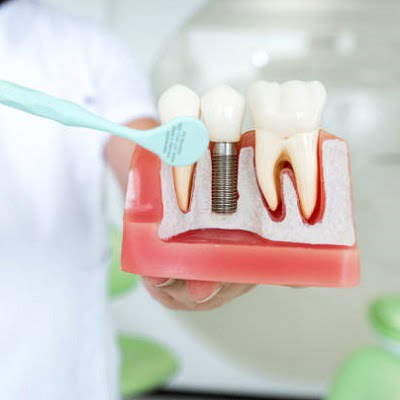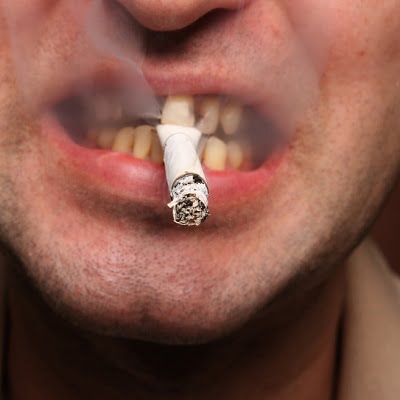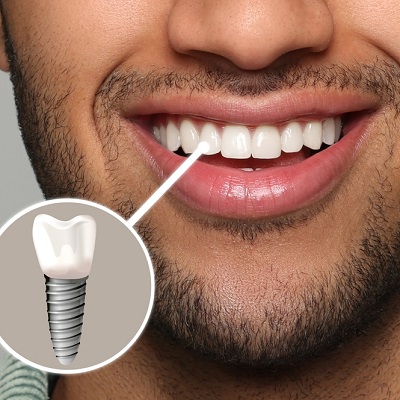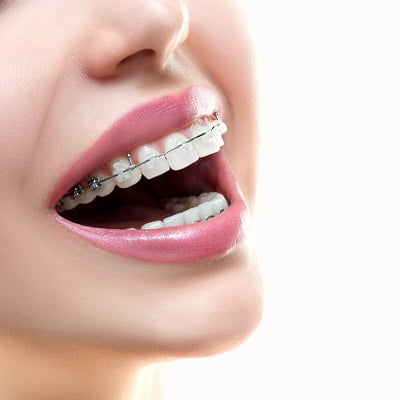Many individuals worry about how uncomfortable the treatment will be when considering dental implants to replace missing teeth. Moreover, a common and rather successful approach to correct your smile and improve the functioning of your mouth is dental implants. There are benefits, however, some people may not want to engage in it due to pain aversion. This detailed information will enable you to determine Is It Painful to Get A Dental Implant and how to handle any such pain.
What Are Dental Implants?
After dental implant , it is precisely implanted into your jawbone to function as a false tooth root. Top it with a fresh tooth or bridge, and it will remain in place. It binds with the bone over time, providing a long-lasting and safe approach for missing tooth replacement. Many individuals choose it as they seem natural and endure a long period.
What Should One Expect Throughout the Dental Implant Procedure?
Understanding the operation of this procedure will assist you to relax about the possible pain. Generally speaking, the method consists of three steps:
-
Initial Consultation and Planning
During your initial appointment, your dentist or oral surgeon will examine your mouth, review your dental history, and order X-rays to check the state of your jawbone. This stage will see you arrange the therapy and ensure your suitability for it. You won’t feel anything at this stage.
-
Implant Placement Surgery
Getting it requires this most of all. To ensure you won’t sense any pain throughout the operation, the dentist will numb the area with the use of an anesthetic. For some sufferers, sedation is an opportunity that could allow them to experience greater comfy and cozy all through the operation. During the procedure, the health practitioner will create a bit of incision on your gum before putting the implant into your jawbone. The healing procedure starts as soon as the gum has been tied off. However, Is It Painful to Get A Dental Implant?
-
Abutment and Crown Placement
Once the teeth have linked with the bone, the dentist anchors it. We term this osseointegration. The fake tooth or crown is then placed following this. At this stage, the location of the procedure should not be painful as it has healed much.
Is It Painful to Get A Dental Implant?
For most people, the actual procedure causes no pain. The local anesthetic numbs the area where the operation is scheduled, and if relaxation is used, patients usually feel comfortable and could even pass asleep throughout the procedure. You could experience some moderate pressure or discomfort as the dentist works, but it won’t be uncomfortable.
What About Pain After the Procedure?
After the anesthetic ends, some discomfort and oedema are common. This reminds me greatly of what you would feel following a tooth extraction. Usually, over-the-counter painkillers like acetaminophen or ibuprofen cover the discomfort. Your doctor might prescribe stronger medicines if you so require them. Usually lasting a few days, the pain passes, and most individuals claim it is not as severe as they had imagined.
How Long Does the Pain Last?
You might have some slight discomfort and swelling during the first 48 hours following the process. These symptoms ought to gradually improve over the next few days. Although the lips may hurt and be sensitive as they recover, this is usually easy to manage with the medications your dentist advises. Within one week of beginning therapy, most patients feel much better.
What to Do if Pain Persists?
See a doctor immediately away if the pain worsens or lasts more than one week. Though they are rare, issues like infections or malfunctioning of it can cause persistent suffering. Your dentist will be able to see what is happening and, should needed, act accordingly.
Ways to Minimize Pain and Discomfort
Here are some things you may do to reduce suffering and enjoy a simple recovery following a dental implant:
- Follow the doctor’s instructions for maintaining the treatment area.
- Avoid hard or chewy meals, use cold packs to reduce swelling, and floss daily.
- Follow prescribed medications or painkillers to avoid illness or discomfort.
- Apply cold packs to the site to ease the pain.
- Maintain optimal dental hygiene by keeping the surgical site clean and infection-free.
- These are worth the temporary discomfort due to their aesthetic appeal and long-term response.
Final Thought:
All things considered, having a tooth implant is not as uncomfortable as many believe it to be. Modern dentistry has advanced enough that the procedure is often performed under sedation or local anesthetic, which keeps you comfortable all through. After the procedure, there might be some little discomfort; but, it can be readily managed with medicines and adherence to post-operative care recommendations by your dentist.
If you desire dental implants without discomfort, consult the best dentists at SKN Cosmetics Islamabad. They will help you acquire a better, healthier smile, walk you through the procedure, and answer your questions.










